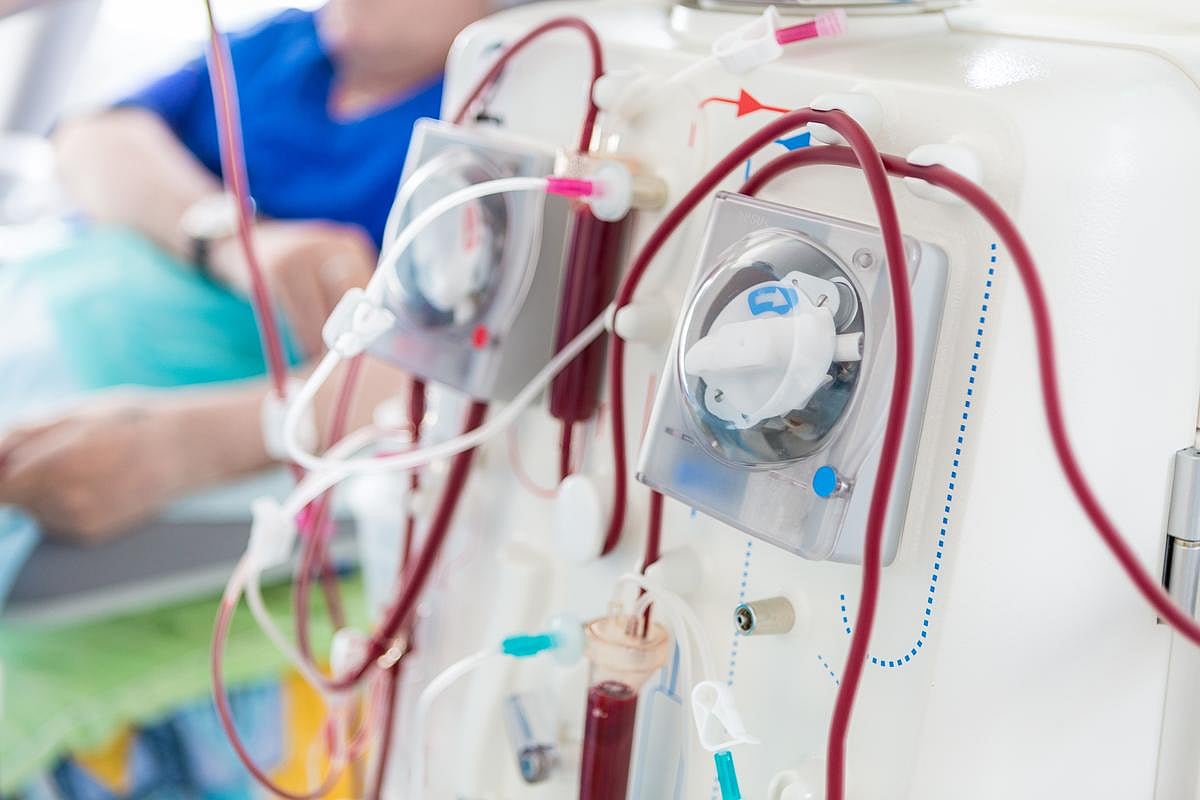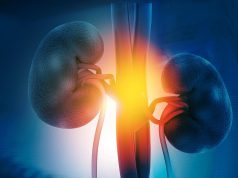Findings seen for patients with advanced chronic kidney disease
By Lori Solomon HealthDay Reporter
WEDNESDAY, Nov. 12, 2025 (HealthDay News) — A new tool can predict individualized probability of survival with conservative management (CM) versus dialysis transition among individuals with advanced chronic kidney disease (CKD), according to a study presented at Kidney Week, the annual meeting of the American Society of Nephrology, held from Nov. 5 to 9 in Houston.
Connie Rhee, M.D., from the University of California, Los Angeles, and colleagues developed a mortality risk prediction tool using data from 61,118 veterans with advanced CKD (at least two estimated glomerular filtration rates [eGFRs] <25 separated by ≥90 days) treated with CM versus dialysis (nonreceipt versus receipt of dialysis within two years of first eGFR <25 [index eGFR]) from 2010 to 2019. This tool was validated in 76,687 patients with advanced CKD treated with CM versus dialysis, identified from the OptumLabs Data Warehouse.
The researchers found that in the veterans cohort (43,197 receiving CM versus 17,921 receiving dialysis), characteristics associated with death included older age; higher index eGFR, urine albumin-creatinine ratio, and Veteran Affairs frailty index; faster eGFR decline; lower albumin and body mass index; prior one-year hospitalization; heart disease; sepsis; and dialysis transition. In the development and internal validation veterans cohort, discrimination yielded C-statistics of 0.70 and 0.69, respectively. Similarly, in the OptumLabs external validation cohort, the risk score had a C-statistic of 0.69.
“Our objective is to establish a stronger evidence base for conservative non-dialytic management in the advanced CKD population,” Rhee said in a statement. “By rigorously studying the comparative effectiveness of conservative management versus dialysis transition, findings from our and others’ research have the potential to expand viable, patient-centric treatment options for CKD.”
Copyright © 2025 HealthDay. All rights reserved.








